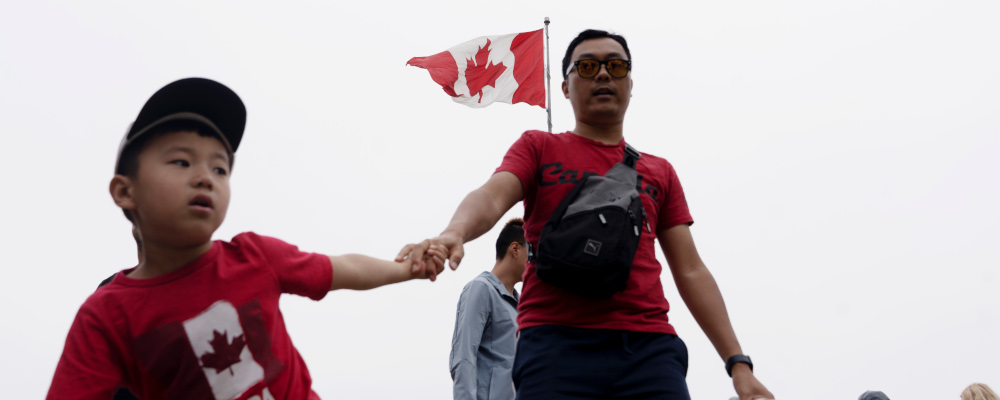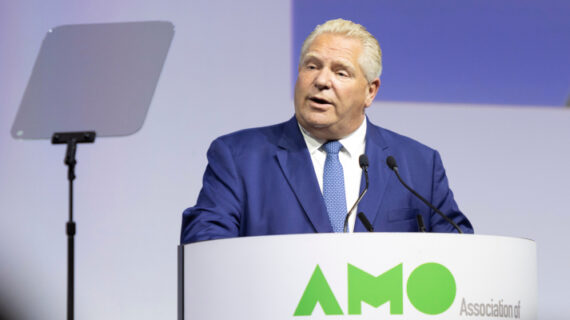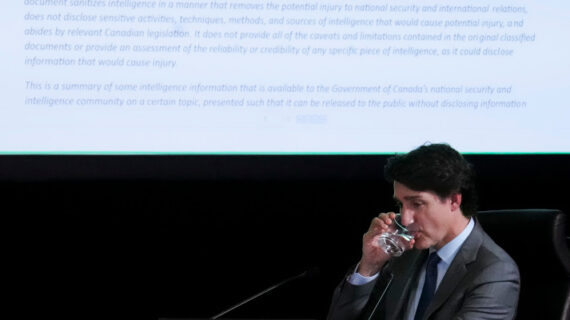Twenty-five years ago, historian Jack Granatstein warned in his controversial yet important book, Who Killed Canadian History?, that political history was being marginalized in academic circles in favour of what he characterized as “new” and “particularistic histories” defined by class, ethnicity, gender, and region.
As someone studying political history a quarter century later, I can attest that the trends that he observed have only intensified. If one looks at recent federal research grants—including the prestigious Vanier Scholarship or Social Sciences and Humanities Research Council doctoral grants—you will find a dwindling number of political historians among the recipients. Not that everyone of course needs to be able to name all the Canadian prime ministers (that is my party trick), but surely there are costs and consequences of mostly abandoning a scholarly focus on the political leaders who have made the decisions that have shaped our country.
The solution to the challenges that Granatstein foresaw however isn’t to go back to an era in which different voices were neglected and the narrative was purely triumphalist. Rather, it is to seek out what I’ve come to think of as a “duality” (or what one could describe as “balance”) between methodologies, perspectives, voices, and ultimately, conclusions. To me, that’s the best way to ensure we are continuing to uncover different perspectives on the past, while at the same time not losing sight of the larger national story.
It was this bigger picture that drew me to history in the first place. My own fascination with the field started at a young age and has only deepened through high school, undergraduate studies, a master’s degree, and now the pursuit of a doctoral degree. What captivates me most is the same thing that Granatstein dedicated his highly-productive career to: political leadership.
My PhD research in particular is focused on Louis St. Laurent, who is sometimes characterized as Canada’s forgotten prime minister—and examines how he used the Canadian military as a tool to expand the country’s foreign policy and international standing during the so-called “golden age” of Canadian diplomacy in the 1950s.
The study of St. Laurent is emblematic of the trends that Granatstein documented in his book. Until Patrice Dutil, a political scientist at Toronto Metropolitan University, published The Unexpected Louis St. Laurent, a volume of essays on the St. Laurent era in 2020, there hadn’t been a single book about him since 1975 when his close aide and personal friend, Jack Pickersgill, published a memoir. Before that, one had to go back to the Canadian centennial to find Dale Thomson’s well-regarded biography of the 12th prime minister.
This academic “slipping through the cracks” might be good for me in that it provides an original angle through which I can contribute to the historiography, but it’s bad overall for Canadians. To fix this, there needs to be scholars willing to continue studying this history. Throughout my experience as a scholar, two lessons have been brought into sharp focus that might represent a middle ground between Granatstein’s critique of the field and the spirited critics of his book and their now-dominant heirs.
First, there doesn’t need to be a trade-off between political history and new lines of historical inquiry that bring the stories and voices of those who were neglected by past historians to life. At their best, they work together to understand issues and historical developments from different perspectives. The result can be a more inclusive and textured understanding of Canada’s past.
Second, while we must confront our historical failures—including exclusion and injustice— it’s okay and even necessary to write about Canada’s achievements and success stories, too. The latter serves to contextualize and demonstrate that Canada should aspire to be better than the former. David Wilson, a historian at the University of Toronto, recently spoke to this point, saying: “Our task is to make the past more intelligible, not to dole out praise or blame.”
All studies of history are important to improve a general understanding of our collective past, and every voice in our history should have a seat at the table. By opening the lid on our shared history—the good, the bad, and the ugly—it shines a light on all things equally. We cannot write about one thing without the other, and it is this balance, this duality, that is sorely missing in much discourse today.
This idea of duality strikes me as the right path out of current tensions in the field. It represents a recognition that history shouldn’t be treated as a zero-sum game. We need both political historians and social historians. We need to wrestle with the difficult parts of our past and recognize the accomplishments. We need to go deep and not lose the big picture.
For example, we should study the important political maneuvering that was required to establish NATO in 1949 and recognize its historical contributions, while acknowledging that no women were part of the negotiation processes other than as secretarial aides. Aiming to achieve this duality keeps the focus on the facts, makes history more intelligible, and helps Canadians better understand the past as well as the world we live in today.
Speaking of killing Canadian history, one of the major issues facing historians today is the woeful access to materials at Library and Archives Canada (LAC). Historian Tim Sayle, whose work I admire, has done much to illuminate the broken Canadian declassification system and has even started Canada Declassified a “digital repository of government records made available” through his own Access to Information (ATIP) requests which he then publishes online.
The frustrating lack of access to records that are more than 70+ years old means scholars cannot use this material in their work. Filing an ATIP request can take months, even years, and for most graduate students who want to complete their degrees in a timely manner, this timeline is severely limiting. This is perhaps a factor for some students in deciding what to study—and might lead students away from highly classified fields like political and military history.

But the state of LAC is not the only evidence that history is on life support in this country—try getting a job. The academic job market is utterly miserable for up-and-coming PhD holders. It is even worse for those who specialize in fields that are not considered in favour. I would not be surprised if this served as a significant deterrent for anyone applying to graduate studies. What this says to prospective students is: we will train you for a job that likely won’t exist, but to have the best shot you might as well focus on one of these more popular or trendy topics.
Which brings me back to Granatstein’s warnings twenty-five years ago. Although his book was criticized as a polemic against the new histories (and there was certainly some of that), at its best, it was a call for the duality that I’ve outlined here. As he wrote about the rise of new ideas and perspectives in the field: “There can be no doubt whatsoever that these developments were long overdue…But like all innovations, there can be too much of a good thing.”
The key takeaway for me on the anniversary of his book is that all historical studies of Canada—across centuries and space and language and background and focus—should be encouraged. The national story includes everyone, and everyone’s interests, passions, successes, disappointments, achievements, and struggles. Bringing them together in the name of balance is the best means for asking questions and searching for answers about Canada’s past, its present, and its future.




